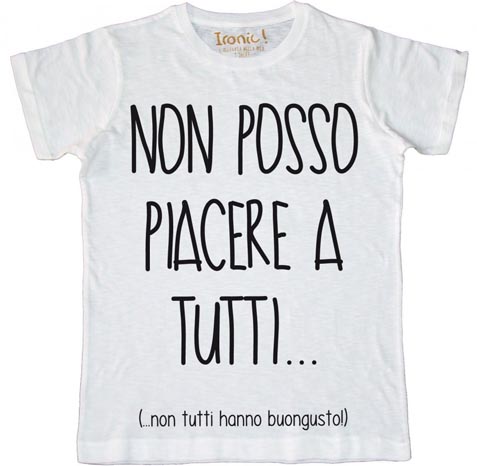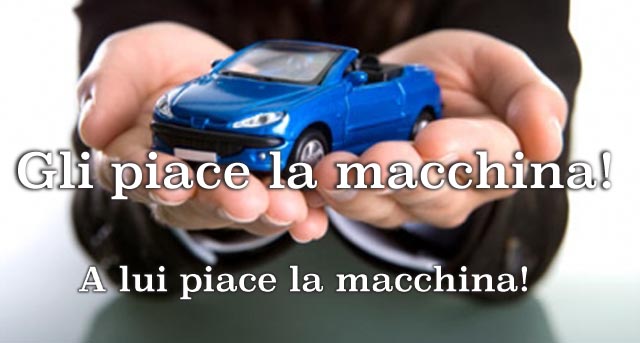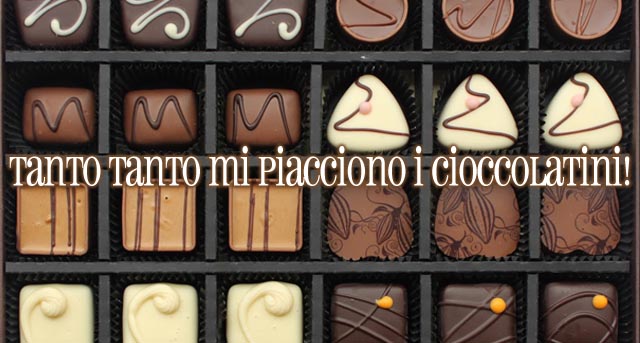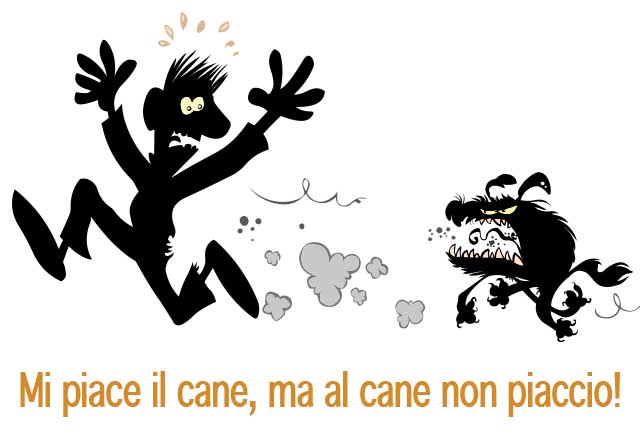
Che Piacere! A Fun Dive into the Word “Piacere”
Discover what makes “Piacere” so special in Italian conversations!
La Matta Parla del verbo “Piacere”
Che PIACERE imparare! Che PIACERE vedervi!
What a PLEASURE to learn! What a pleasure to see you!
Vi PIACE imparare nuove cose? Anch’io! Mi PIACE scrivere il blog Studentessa Matta e parlare con voi della lingua italiana. Per me è sempre un PIACERE approfondire la mia conoscenza della lingua!
Do you like learning new things? Me too! I enjoy writing the Studentessa Matta blog and talking about the Italian language. For me, it’s always a pleasure to deepen my knowledge of the language!

Il significato di “Piacere”
The meaning of “Piacere”
PIACERE si usa per esprimere che qualcosa ci piace o ci dà piacere. Può anche significare che troviamo qualcosa di attraente o che approviamo una cosa.
“Piacere” is used to express that we like or find pleasure in something. It can also mean we find something attractive or agreeable.
Quando dire “Piacere”
When to say “Piacere”
Puoi usare PIACERE quando incontri qualcuno per la prima volta. Per esempio, Marco e Gianluca si stringono la mano, e Gianluca dice: “Piacere!”
You can use “Piacere” when meeting someone for the first time. For example, Marco and Gianluca shake hands, and Gianluca says: “Piacere!”

Quando il verbo “Piacere” si fa complicato
When the verb “Piacere” gets tricky
Le cose si complicano un po’ quando dobbiamo coniugare il verbo PIACERE. Per chi ha una mentalità anglosassone, può risultare davvero sconcertante. Questo perché PIACERE non significa semplicemente che “qualcuno apprezza qualcosa,” ma piuttosto che “qualcosa è gradita A qualcuno.”
Things get a bit tricky when we conjugate the verb “Piacere.” For those with an Anglo-Saxon mindset, it can feel quite perplexing. That’s because “Piacere” doesn’t just mean “someone likes something,” but rather that “something is pleasing TO someone.”
In Italian, the SUBJECT and the OBJECT are flipped compared to English, which can confuse language learners. Let’s take the English sentence: “I like pizza.”
“I” is the SUBJECT
“PIZZA” is the DIRECT OBJECT*
But in Italian, to express the same idea, we say: Mi piace la pizza.
Essentially, we are saying: “PIZZA is pleasing TO me.”
“Piacere” doesn’t function like “to like” in English. In Italian, the structure is flipped: the subject is the thing liked, and the person who enjoys it is the indirect object. This shift in perspective can take some time to get used to, but with practice, it will feel natural!
Mi piace il gelato. (Il gelato mi piace.)
I like ice cream. (Ice cream is pleasing to me.
Ti piace la pizza?
Do you like the pizza?
Gli Oggetti Indiretti e il Verbo “Piacere”
Indirect Objects and the Verb “Piacere”
Remember that in Italian, the indirect object is introduced by the preposition “A.” For example: A me, A Giovanni.
Because of this sentence structure, you must use an indirect object with the verb PIACERE. The indirect object represents the person who likes something.
A Lucia piace cucinare. Lucia is the indirect object.
Le piace cucinare.
(She likes cooking. To her is liked cooking).
Here are all the Indirect Object Pronouns to be used with PIACERE.
Mi (a me) – to me
Ti (a te) – to you
Gli (a lui) – to him
Le (a lei) – to her
Ci (a noi) – to us
Vi (a voi) – to you all
Gli (a loro) – to them*

Piace o Piacciono? Singular vs. Plural
Another important thing to remember is that the verb form changes depending on whether what is “liked” is singular or plural.
Because of this sentence structure, you must use an indirect object with the verb PIACERE. The indirect object represents the person who likes something.
Mi PIACE un biscotto. / I like a cookie.
Mi PIACCIONO i biscotti. / I like the cookies.
Mi piace il cioccolato. / I like the chocolate.
Mi PIACCIONO i cioccolati. / I like the chocolates

If the subject (what is liked) is a VERB
If the subject (what is liked) is a VERB like, “andare”, “preparare” or “disegnare” you would use the singular form of piacere – PIACE. Like this:
Mi PIACE andare in bicicletta. / I like riding a bike.
Le PIACE fare le torte. / She likes making cakes
Ti PIACE disegnare? / Do you like drawing?

Conjugating “Piacere” Past Tense
In the past tense, “Piacere” uses the auxiliary verb ESSERE and the past participle must agree in number and gender with the verb it is modifying.
Mi è piaciutA la festa.
I liked the party.
Mi è piaciutO il libro.
I liked the book.
Mi sono piaciutI i film.
I liked the movies.
Mi è piaciutA la pizza.
I liked the pizza.
Mi sono piaciutE le lasagne.
I liked the lasagna.

“Piacere” Conjugations Beyond the Basics
Let’s wrap up with a final thought: the verb PIACERE can be conjugated like other Italian verbs. Here are its present-tense forms:
Piaccio – I am pleasing
Piaci – You are pleasing
Piace – He/She/It is pleasing
Piacciamo – We are pleasing
Piacete – You all are pleasing
Piacciono – They are pleasing
But when are these forms used, you ask? Let’s look at an example:
I like the dog, but the dog doesn’t like me.
The first part is straightforward and we’ve covered it: “I like the dog” translates to Mi piace il cane. That seems simple enough, right? (Remember we are flipping the subject and object, so in Italian, it’s really: The dog is pleasing to me.)
Cane – Dog = il SOGGETTO
Mi – To me = l’OGGETTO INDIRETTO
Now let’s move to the second part: “The dog doesn’t like me.”
Here’s where it gets a bit tricky. In Italian, we say: Al cane non piaccio.
Let’s wrap up with a final thought: the verb PIACERE can be conjugated like other Italian verbs. Here are its present-tense forms:
Piaccio – I am the one who is (or isn’t) pleasing = the SUBJECT
Al cane – To the dog = the INDIRECT OBJECT
Io piaccio a Marco.
Marco likes me. / I am pleasing to Marco.
Io piaccio ai tuoi amici?
Do your friends like me? / Am I pleasing to your friends?
Like a dog with a bone chew on that for a while!!! Don’t you just LOVE Italian!?!?!
Non vi piace l’italiano?!? Niente paura! Questa frase può sembrare complicata e fa girare la testa anche a me! Ma con calma e un po’ di pratica, tutto diventerà più semplice e chiaro.

Raffaella Carra canta Tuca Tuca…ahhh mi piace!
Un po’ di practica!
Fill in the blank with the singular or plural form of Piacere in the present tense.
Gli ________ molto gli animali, sopratutto i cani.
Le ________ quest’abito che le ha offerto la nonna?
A loro________ i musei d’arte moderna?
Ci ________ le canzoni italiane?
Ti ________il film che abbiamo visto al cinema?
Ti________andare in vacanza con I tuoi genitor?
Vi ________questa casa di familia?
A Fabrizio e Stefano non ________andare a fare la spesa!
Mi ________molto le serate tra amici.
Al ragazzino non ________dormire da solo, ha paura!
Non ti________gli insegnanti di matematica
Now, change these sentences written in the present tense to the past:
Mi piace andare a Venezia.
Non ti piace mai andare per negozi.
Gli piacciono i cibi esotici.
Le piace cantare con gli amici.
Non ci piacciono mai le persone maleducate.
Ti piace il film?
Ti piace la torta?
Le piacciono i film francesi?
Gli piacciono le canzoni d’amore?
Ti piace questo esercizio sul verbo “piacere”?
Form the following into present tense sentences using the word correct form of “Piacere”
Paolo / fare le valigie
(io) / le patate
(voi) / la festa
loro / le ragazze
lui / ballare
Le / bere il caffé.
Ti / mangiare gli spaghetti.
Mi / i fagiolini.
A lei / sempre le lasagne della sua mamma.
A Leone / molto la birra.











Grazie!
Prego!
Mi piace molto questo post del blog. Per favore scrivi altri post di grammatica.
This is AMAZING! I’m doing Italian Rosetta Stone, and if only i had THIS type of explaination behind everything…it would be so much better! Thank you for the help!
Hi, thanks for the resources. I found your site via a (desperate) google search to unravel piacere. You explain it well and I have tried to the exercises. The lack of solutions leaves me fearing I have got some wrong. Does anybody have a list of solutions? Mi piaccio impare Italiano. Non è facile, ma nulla vale la pena mai.
immediately I note I have said “mi piaccio impare” which should be “mi piace impare” because it is followed by a verb. Warning- slow moving brain in progress!
Ciao Steve, I’m glad you found the post of the verb piacere helpful.
After viewing the post again, I realized that the link to the video at the end of Raffaella Carra singing Mi piace… was broken… so I just updated it. It’s a fun song so you should check it out!
If you want help with correcting your exercises, feel free to send them to me at Melissa@studentessamatta.com
I’d be happy to sort them out for you and resolve and “dubbi”
A presto! Melissa
Molto bene!
Mi piace la tua lezione
Grazie mille
sono contenta che tu sia piacuto il post!
Ciao Melissa
Molto, molto, utile! Una piccola domanda… Come si usa “piacere” con i list delle parole? Per essempio 1: ‘Mi piace’, o ‘mi piacciono’, ‘il cielo, le mare e la piaggia’? (Un list delle parole singolare.) Per esempio 2: ‘Mi piace’, o ‘mi piacciono’, ‘il cielo e gli uccelli’? (Un list delle parole singolare e plurale.)
Grazie mille
Sono appena tornata dall’Italia. Mi dispiace di aver risposto così tardi.
Con una lista si usa piacere così: Mi piace il caldo, il mare, i buoni pranzi….
Ma quando non è necessario usare ‘A’ per che ho visto molto frase sensa ‘A’ con piacere
Ciao Christine, You use “A” with piacere in this way:
A me piace il gatto. / A me piacciono i gatti. or you can use indirect pronouns: Mi piace il gatto. Mi piacciono i gatti.
To me the cat is pleasing. To me the cats are pleasing. (In English we’d phrase it like this instead: I like the cat)
A lui piace il cane. / A lui piacciono i cani. or you can use indirect pronouns: Gli piace il cane. / Gli piacciono i cani.
To him the dog is pleasing. To him the dogs are pleasing. (In English we’d say: He likes the dog)
The preposition “a” or “to” is used instead of an indirect pronouns (mi, ti, gli, le, ci, vi)
Se hai altre domande fammi sapere!
A presto! Melissa
Mi piace molto il tuo blog su verbo “piacere”. Anche, è stato un vero piacere guardare il tuo video.
Grazie bene per tutti. È il miglior corso in assoluto nell’uso del verbo piacere! Mi piace molto.
Ciao Melissa
Mi piace molto questo posto. Faro le lezzione per Martedi.
Ci parliamo piu tardi
Carol